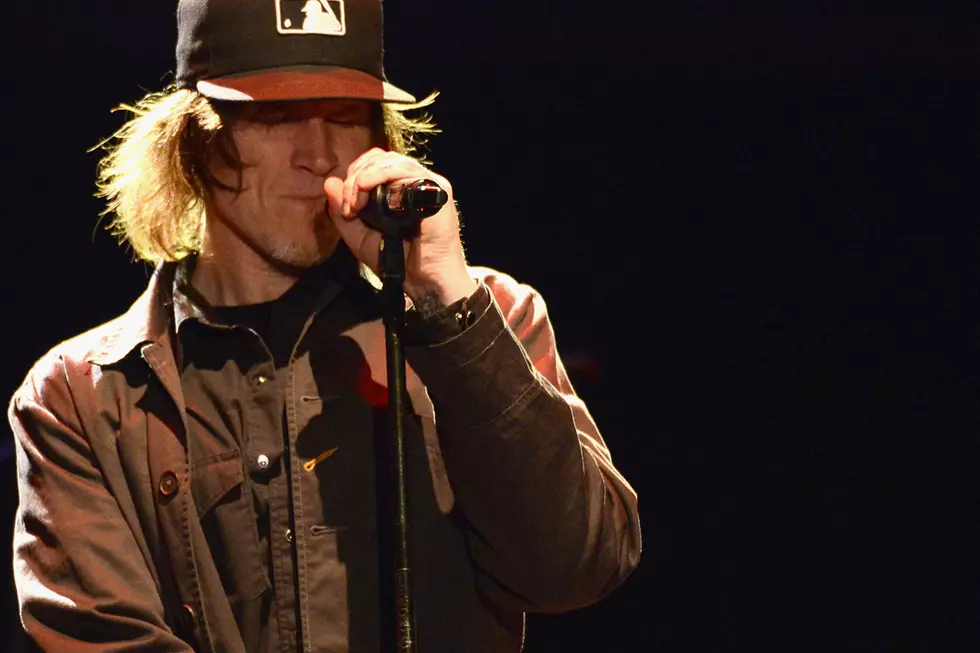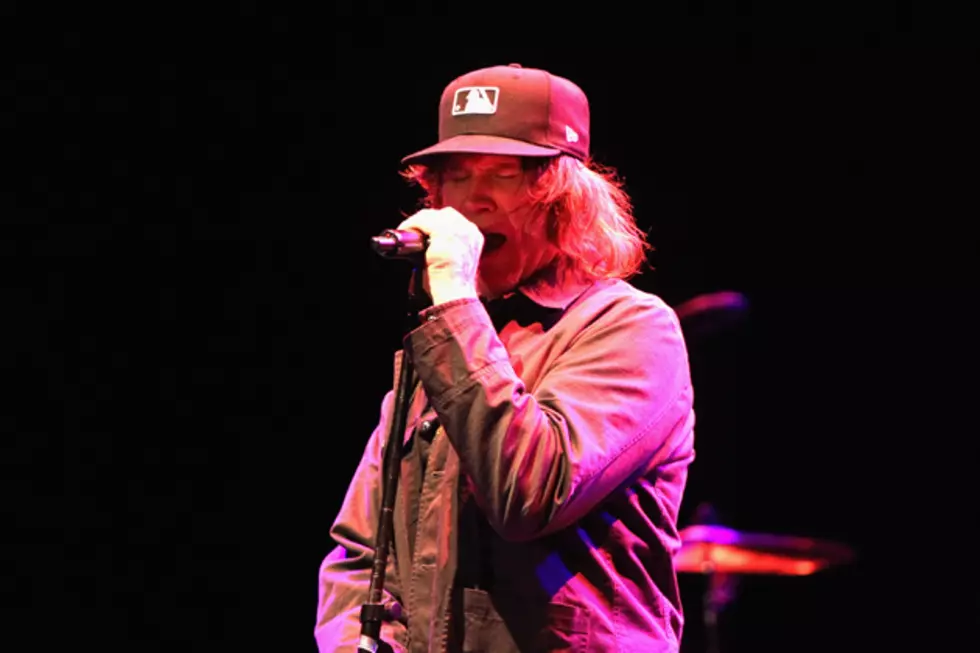
Mark Lanegan Heaves His Mountainous Voice Into New Territory
Mark Lanegan, onetime singer of Seattle grunge band Screaming Trees, has made a venerable solo career out of delivering varying (and invariably dark) approaches to the blues. His voice is one of the most distinctive in rock and has always lent itself well to spare, slow arrangements. On his newest album, 'Phantom Radio,' Lanegan shows off a recent fascination with synthetic textures, inspired as much by the bleak rhythms and fabricated sounds of Depeche Mode as from the dark Americana that comprised most of his decades-long career. And somehow, the two don't sound at odds.
It was after Lanegan isolated himself from Screaming Trees that he started mining the blues. That band had progressed from Nuggets-y blues rock to the heavy Zeppelin-influenced rock of Seattle contemporaries like Soundgarden. They'd bummed around the dingy stages of the Northwest for years before making the leap into the mainstream with 1992's 'Nearly Lost You' and its fortuitous inclusion on the 'Singles' soundtrack.
But at the same time the Trees were riding the grunge wave, Lanegan was starting to cultivate a solo career that featured a quieter, more traditional sound. He started with an EP of blues covers he recorded with Kurt Cobain, now lost to the moldy storerooms of history. (Nirvana’s unplugged version of Leadbelly's 'Where Did You Sleep Last Night,’ as well as Lanegan’s version from his 1990 solo debut 'The Winding Sheet,’ both resulted from the abortive collaboration.)
It gave him the space to explore the lower registers where his voice, gritty as dirt and corrosive as alcohol, could thrive.
Lanegan’s second solo album, 1994’s 'Whiskey for the Holy Ghost,' continued his venture into slow, droning folk music -- giving him the space to explore the lower registers where his voice, gritty as dirt and corrosive as alcohol, could thrive. ‘Scraps at Midnight’ (1998) is an album of mostly-acoustic ballads and dirges and one of Lanegan’s best records; his 1999 cover of Brook Benton’s ‘I’ll Take Care of You,’ one of the best songs he's recorded, brings out softer tones of his voice, washing it in lounge club vibraphone without washing it out. In 2006, he began a three-record project with Belle and Sebastian's Isobel Campbell, a Beauty and the Beast combination that resulted in some of his prettiest music -- further proof of his ability to apply his unique voice to just about any style.
By this time it was long since clear that Lanegan could sing more than psychedelic ragers and loping funeral marches. And then, a great leap forward, from 2010's 'Hawk,' his last, soulful collaboration with Isobel Campbell, to 'Blues Funeral,' in 2012, and now 'Phantom Radio,' its follow up. 'Phantom Radio' is Lanegan's most colorful album to date, a step beyond the uneven soundscapes of 'Blues Funeral.' With producer Alain Johannes, he drives full-bore into new territory. The new sounds are, in part, due to Lanegan finally indulging some softer impulses – he admitted recently to a closeted admiration for Echo and the Bunnymen and the Gun Club. "We loved that stuff," Lanegan said. "I just waited until I was in my late forties before I started ripping it off.”
The new songs themselves aren't as interesting as their textures -- the melodies staying within a small space, almost to a drone (nevertheless suiting Lanegan's voice); the lyrics strung together from violent or spare images. But the sounds are arresting -- the way walls of distorted horns and thick synthetic strings meld with Lanegan's voice, calibrated for each note, a bluesy tremolo in the middle range, the low notes digging deep into the earth. 'The Killing Season' sees him slinking over synths that could have been borrowed from a Kylie Minogue tack, yowling about his old grey overcoat and "the perfume of your blood." On 'I Am the Wolf,' he sings: "I am the wolf / Combing the beach ... The carcass of the Leviathan / Sways gently on the waves," over layers of Duke Garwood's guitar, undulating like a dead ocean. Lanegan is the wolf, singing a shivering, desolate blues.
It's rewarding for us and for Lanegan that he's made such a decisive move into new territory. His voice is good enough to handle it; it's a mountain only he has the strength to move. His acoustic blues dirges were often a vehicle for his voice, evocative as it is of creaking walls and dusty pages. But on 'Phantom Radio,' Lanegan retains the blues while straying away from its classic instrumentation, squeezing emotion from his monster of a voice, but freeing himself up to stretch it out over refreshing new sounds.
More From Diffuser.fm









